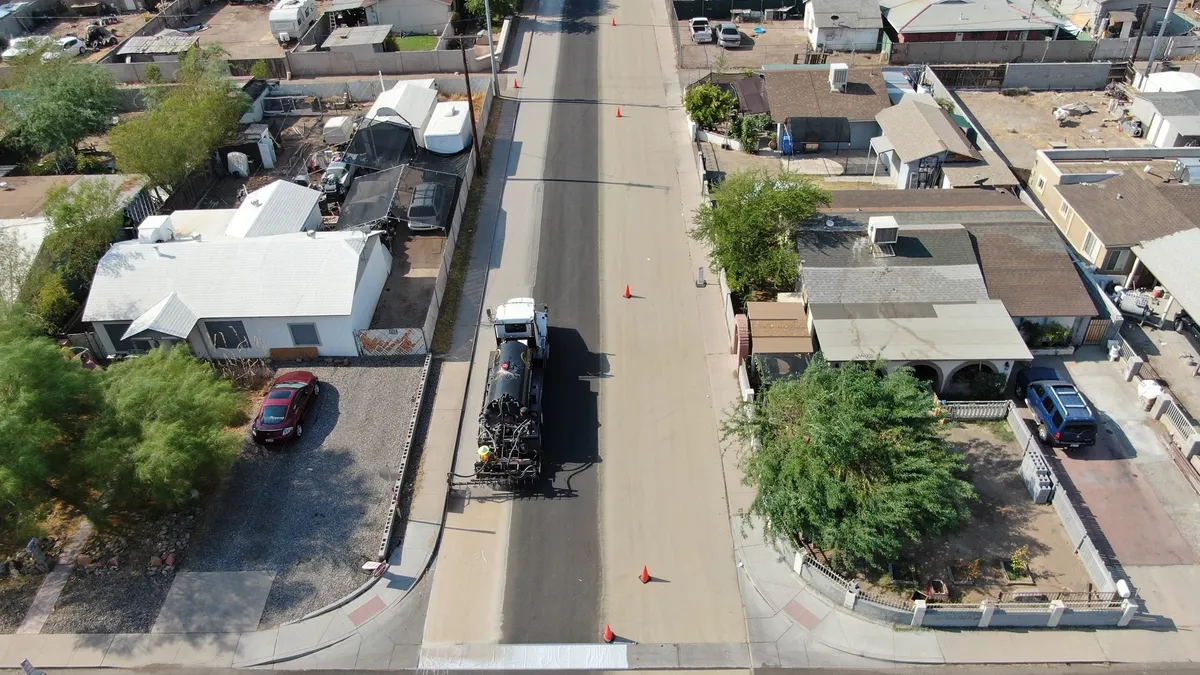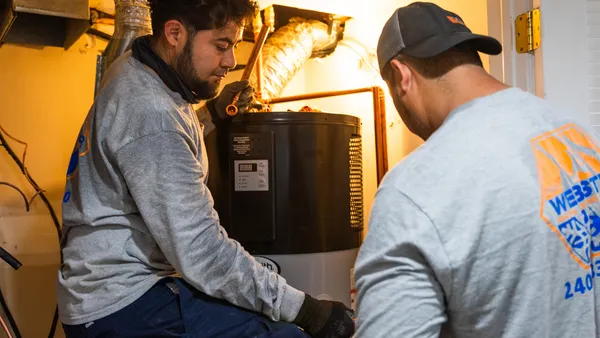Dive Brief:
- A proposed California law would require contractors working on state projects to buy lower-carbon construction materials from low-carbon producers, according to Building Design + Construction.
- The Buy Clean Act covers steel, rebar, flat glass, and mineral wool board insulation and requires the state to calculate the average greenhouse gas (GHG) emissions per unit in their manufacturing.
- Contractors bidding on state construction projects would have to provide proof via Environmental Product Declarations that the materials they're using are at or below average GHG emissions.
Dive Insight:
If passed, the measure has the potential to change the way the vast majority of construction materials for state projects are sourced — by cost. It also would likely translate to fewer purchases of materials made in China, a country known for its cut-rate prices but also for its lower-efficiency manufacturing.
There's no denying that the use of green materials is on the rise. According to an October report from Research and Markets, the world's sustainable construction materials market for the commercial buildings sector will reach $187 billion by 2026. The trend, the report notes, is being driven by the insulation, roofing, framing, exterior siding and interior finishing trades.
More homebuilders, too, are turning to green construction methods and products, according to a report from Dodge Data & Analytics and the National Association of Home Builders. In their report, the organizations found that one-third of builders said green construction made up 60% of their activity. That number is expected to grow, thanks to the maturing sustainable construction market and a greater availability of more affordable green products.
Contractors are ultimately responsible for the implementation of a construction project's green policies, and if the California proposal becomes law, the measure could add to the lead time — the period of time it takes to order material and have it delivered — for the products in question. The law will likely cost the state more in monitoring expenses to ensure that contractors' paperwork matches the material they are actually using on a project.
Kristin Schuster, a project architect with SWBR, told Construction Dive in August that, due to cost considerations, owners are sometimes forced to move forward on a less sustainable path if a contractor has installed the wrong materials. The California measure, however, could help prevent that situation from happening.











